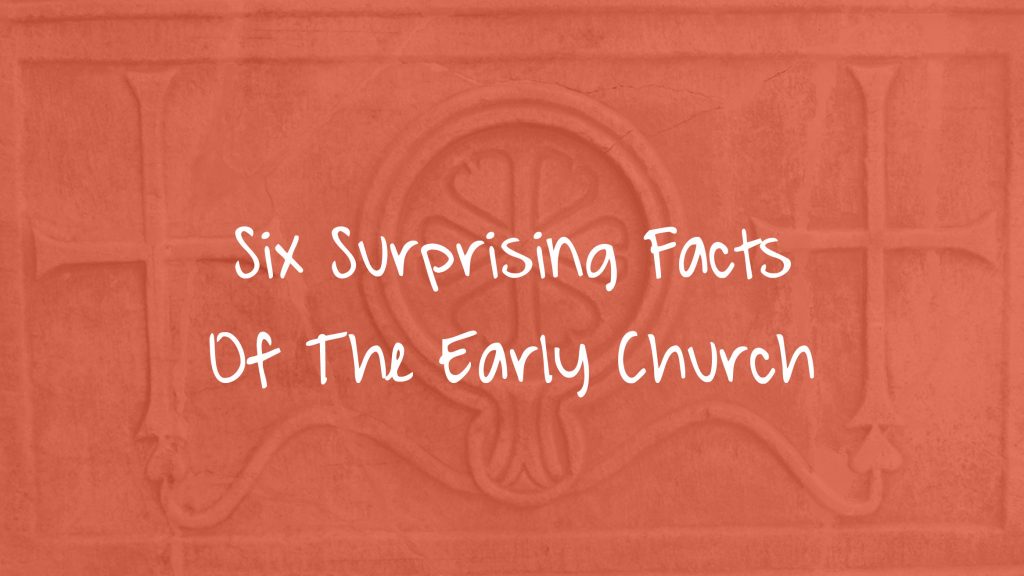Remember those who led you, who spoke the word of God to you; and considering the result of their conduct, imitate their faith (Hebrews 13:7, NASB1995).
The writer of the book of Hebrews tells us to remember the believers who spoke the word of God to us – and considering their conduct – imitate their faith.
Throughout my life, especially since I was raised in a denomination claiming to be the “New Testament Church,” my example of church life came from the book of Acts in the New Testament.
How many of you have heard someone use the book of Acts to justify church practices today?
Because most of us aren’t historians, and the early Christians didn’t Post or Tweet, and even if they did, we don’t read Greek, Hebrew, or Latin – we don’t know much about the church after the book of Acts.
In this Interruption, I note some historical facts of the church in the first three centuries.
Certainly, if a church was a “New Testament Church” it would be the one that existed in closest proximity to the church described in the book of Acts. Also, lessons learned from those who lived in arguably the most productive time in the history of the church – should be remembered and emulated!
Let’s consider and emulate the following facts of the church in the first three centuries…
- The church grew 40 percent per decade in its first three centuries. This growth came despite persecution and death threats.
- The church wrote a lot of books in those centuries. In fact, most of the existing Greek and Latin literature from that time is Christian. However, not a single manuscript can be found that deals with mission strategy or evangelism.
Yep, the most successful church with evangelism in the history of Christendom didn’t talk about it much!!!
- The early church practiced, talked, and wrote a lot about habits/disciplines, and peace. They focused on living their faith under authority and accountability. They formed groups of believers that met in houses or even catacombs. They tended to exclude visitors until those new to the faith exhibited faithfulness.
- The worship services were powerful both in concentrated gospel persuasion, encouragement to escape ungodliness, and to glorify God.
The early church didn’t really care what those outside of the faith thought of their extremely narrow theology. They just lived it as a testimony in a life that gave a peace not known by those outside the church.
- Neither bestselling authors or celebrity pastors were the cause of the growth in the early church. Small communities were the most common method of outreach. There were no church planting strategies, just committed lifestyles lived together.
- Women were key participants in spreading the gospel – especially slaves. In the second century, when an itinerant prophet visited a village in Syria to share the gospel, he discovered a single believing woman slave already there living in this pagan environment.
Woman are believed to have formed sleeper cells that became future church communities!
Amazingly, one scholar describes the evangelism of the first three centuries as “the missionary success of the lowly.”
What do we learn today from the early church and the powerful spread of the gospel in the first three centuries?
God used regular believers – like you and me – uncompromised in devotion and committed to communities of worship.
I think we can still follow this plan today.

